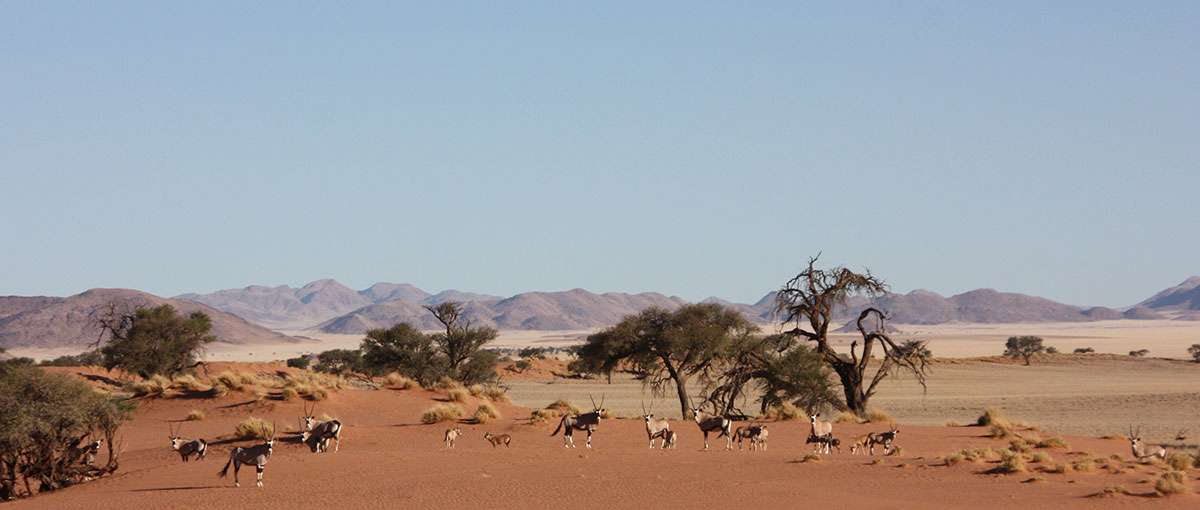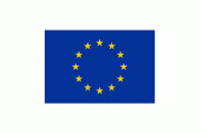Semi-arid countries like Namibia, are highly dynamic systems that experience variable and sometimes extreme climates, adverse environmental change, and a relative paucity of and decline in natural resources. Historically, people living in these regions have adopted several coping mechanisms to deal with these conditions. Today, however, many communities exhibit low levels of adaptive capacity due to challenges such as marginalisation, underdevelopment, poverty, inequality, weak governance, maladaptive policies, and increasing population growth. Climate change is expected to augment existing levels of vulnerability, as temperatures rise, rainfall decreases, and seasonal climate patterns become more variable.
The CLARE-Namibia project has a key objective which is to raise awareness and understanding of Namibia specific climate change projections, implications and international commitments made by Namibia. The IPCC 1.5°C report shows that early and decisive action will not only reduce the risks of overshooting the Paris temperature targets, but also slow down the rates of change, making local adaptation easier to roll out. At current emission rates, the 1.5°C global temperature increase mark could be crossed as early as 2024, with the 2°C mark being crossed 14 years later in 2038. This will leave very little time to respond to any associated impacts, in the absence of targeted interventions for climate action.
In order to attain climate action in Namibia, there is a need to enhance collaboration between line offices/ministries/agencies/key actors (O/M/A’s) who should be collaborating on upscaling climate action both horizontally (especially at national and regional levels), and vertically (from national to local levels). These multi-stakeholder processes are suited to achieve the desired change and are explicitly outlined as policy objectives of the National Policy on Climate Change (2011) whereby the policy seeks to integrate climate change effectively into policies, institutional and development frameworks as well as enhance the capacities and synergies at local, regional and national to ensure successful implementation of climate change response activities. On the 22-24 of November 2021, the project convened an integrated workshop involving key stakeholders from national, regional and local levels. Improved collaboration – among government, non-governmental organisations, academia and communities – can lead to the production of climate and adaptation information that is reliable and relevant to local subsistence farmers. It can also ensure that this is disseminated to those who need it in a timely manner.
Building on Namibia’s decentralised water reform, water and drought governance could be strengthened if there was a better understanding of and support for local challenges. This could be partly achieved by increasing the awareness and willingness of decision makers to be more inclusive of the knowledge that community members and other marginalised groups provide, building the capacity of local actors to proactively engage in governance, and by providing more targeted support for managing water better at the village level. Anchoring onto existing regional structures such as the Disaster Risk Management (DRM) and Regional Development Committees (RDCs), the stakeholders present mapped out pathways on how theirregions can incorporate climate development resilience planning into their develop plans.
At a policy and planning level, the mandate for climate change sits with the Ministry of Environment, Forestry and Tourism (MEFT). However, local-level councillors and technical staff have expressed that at an operational level, the mandate for adaptation is unclear. This problem is driven, in part, by the absence of sufficiently detailed legal guiding frameworks for adaptation. Ministries and departments are currently separated into silos, which means that planning occurs in a fragmented, top-down manner. Adaptation activities are also centralised at the national scale, despite that a decentralisation policy exists. Where decentralisation has occurred, it has in some cases led to maladaptation. A lack of coordination between sectors has led to critical oversights, not least the failure to mainstream adaptation into national policies. The result of this is that adaptation objectives are incompatible with the focus of these policies, including the National Development Plan. Poor vertical and horizontal integration and insufficient sharing of information can cause conflict due to inter-ministerial power struggles and the politicisation of non-political (e.g. technical) issues. Moreover, whilst traditional authorities are formally recognised by government, they are not allocated sufficient budget and are therefore not adequately supported or empowered to implement interventions or undertake adaptation activities.
Climate change poses a significant threat to vulnerable populations in semi-arid Namibia. Most at risk are communities who inhabit marginal environments, who are dependent on natural resources to sustain their livelihoods and who are already exposed to issues such as poverty, inequality (including gender disparities) and poor governance. This underlying vulnerability is augmented by a lack of capacity to adapt to climate change, due to various financial, technological, institutional, informational and social barriers. Overcoming these barriers is possible, but will require champions to drive the climate change agenda and to leverage opportunities for adaptation funding and support. Building relationships and networks, engaging stakeholders at all levels, aligning policy priorities and integrating science with traditional knowledge are also essential factors for enabling effective, sustained and widespread adaptation to climate change in Namibia.
These integrated meetings are a the stepping stones towards achieving climate governance.







































